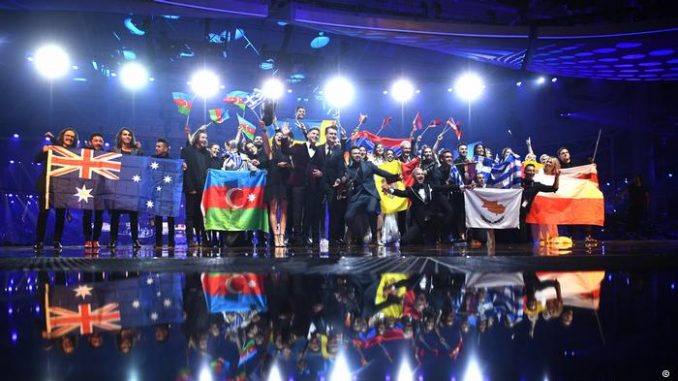
This year’s 10 Eurovision finalists were chosen Saturday evening amidst strong entries and difficult choices, reports Deutsche Welle. The show and the audience mood gave no indication that this 62nd Eurovision Song Contest is taking place in a country where a war is going on. The only reflection of Ukraine’s ongoing conflict with Russia was the latter country’s absence.
Russia is boycotting the event after Ukraine prevented its contestant from entering the country, due to her past illegal stay in Russia-annexed Crimea. For politicizing the contest, both Ukraine and Russia may be penalized by the European Broadcasting Union (EBU), which hosts the event, including a possible exclusion from future competitions.
One of the surprises of the evening was the qualification of Isaiah from Australia, who gave a strong but not flawless rendition of the song “Don’t Come Easy.” At age 17, the singer has already racked up chart successes in Europe.
Isaiah, who comes from a family of 12 children, is the first Aboriginal Australian to represent his country at the contest. This is the third year that Australia has participated, and each time it has qualified for the final.